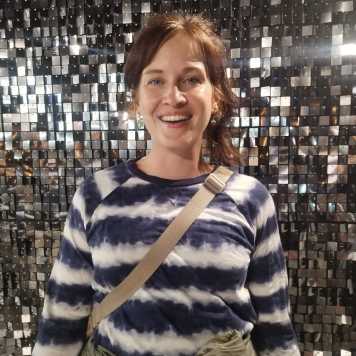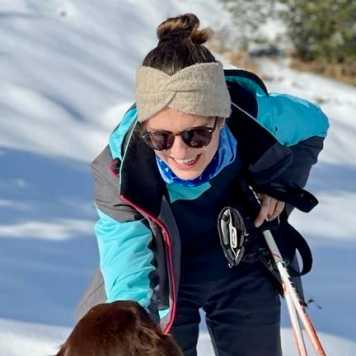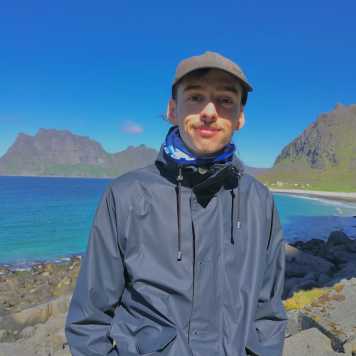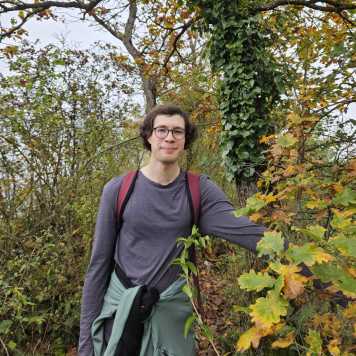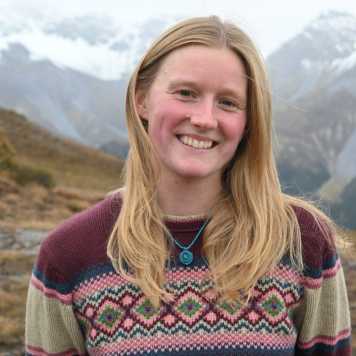The Group
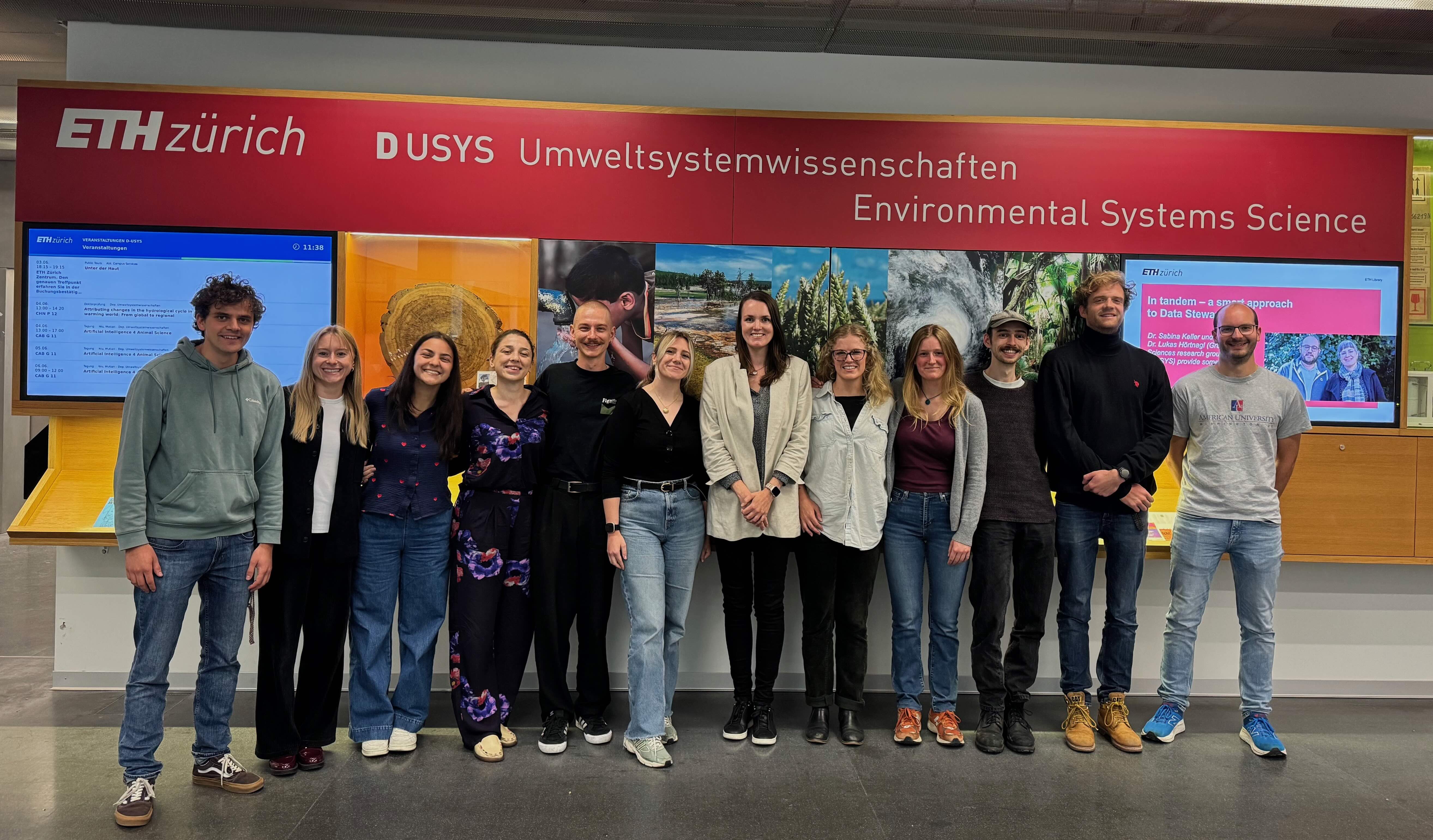 Donat Crippa, Sebastian Haiß, Giulia Fiorito, Hanna Zehnle, Madison Barney, Anna Beretta, Leona Tauchmann, Joaquim Barmaz, Lukas Wanner, Marie Schölmerich, Carolin Schramm (left to right, top to bottom) Picture taken during team event on 19.11.2024
Donat Crippa, Sebastian Haiß, Giulia Fiorito, Hanna Zehnle, Madison Barney, Anna Beretta, Leona Tauchmann, Joaquim Barmaz, Lukas Wanner, Marie Schölmerich, Carolin Schramm (left to right, top to bottom) Picture taken during team event on 19.11.2024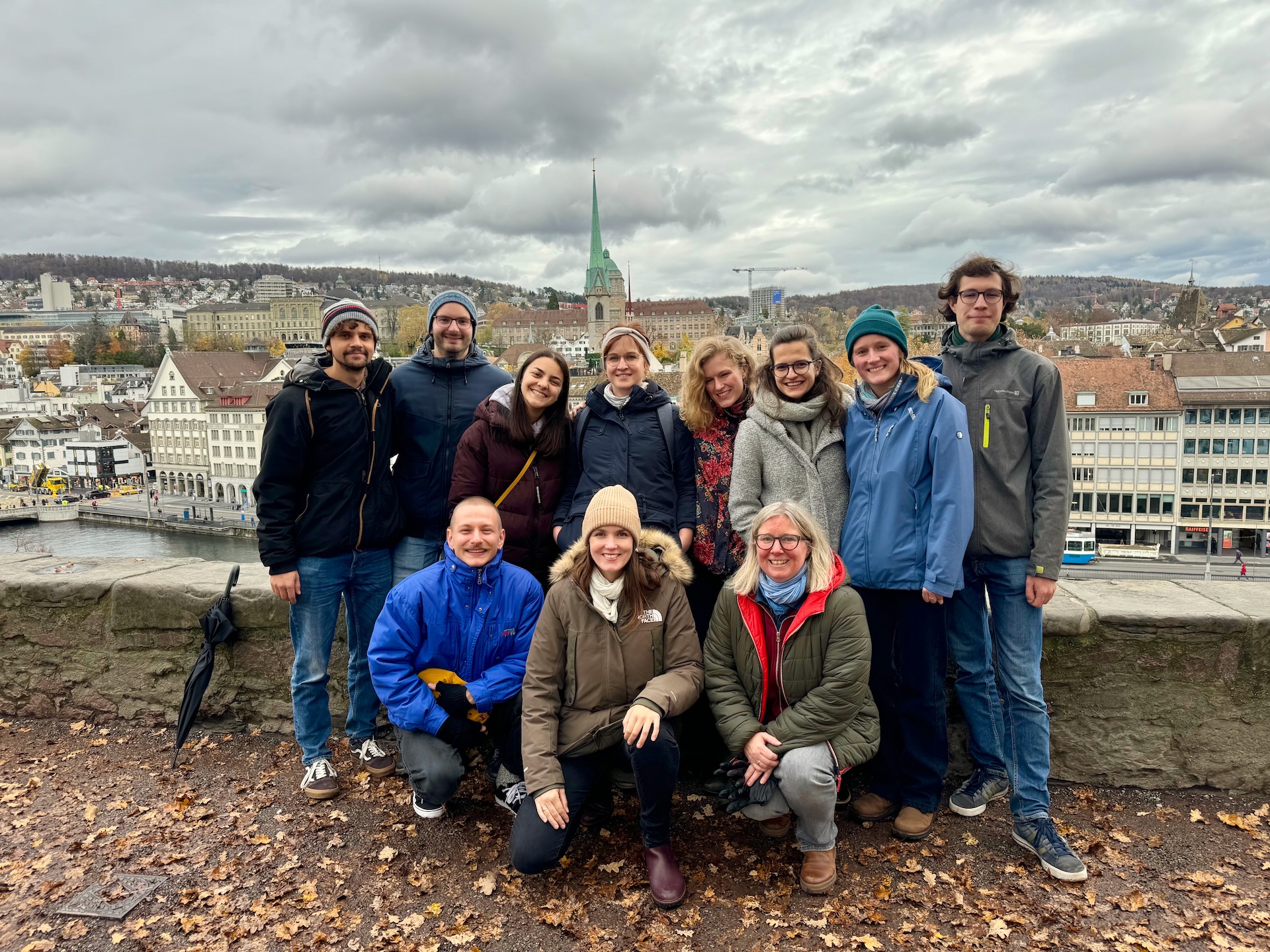
Our Mission
The Environmental Microbiology group is dedicated to illuminating the fascinating world of anaerobic microbiology from the global scale to the microscale. We focus on microorganisms that use an ancient pathway to capture and convert the greenhouse gases carbon dioxide (CO2) and methane (CH4). Through a combination of metagenomics, classic microbiology, and biochemistry, we aim to decipher the influence of anaerobic microorganisms on biogeochemical cycles and seek to identify the molecular elements and mechanisms driving these processes. The long-term goal of our research is to illuminate fundamental mechanisms and principles of environmental processes and inspire sustainable technologies.
Marie Schölmerich

I am fascinated by anaerobic microorganisms that use a primordial pathway to transform the greenhouse gases carbon dioxide and methane. Despite their ancient metabolic origin, they still exist across many different anoxic environments and hold many mysteries yet to be uncovered. As a PhD student, and junior group leader, I applied classical microbiology and biochemistry to understand how these microorganisms survive at the thermodynamic limits of life. As a Postdoc, I expanded my perspective, examining them through the lens of environmental metagenomics within natural ecosystems. In my group at ETH Zürich, we now combine computational and experimental approaches to gain new insights into the fascinating world of C1-metabolizing bacteria and archaea that impact climate change.
Bledina Dede

I am passionate about understanding microbial metabolism and its role in shaping environmental cycles. My journey began with a fascination for hydrothermal vents and the remarkable ability of microbes to fix carbon in the dark. The intricate relationship between geology, chemistry, and microbiology in deep-sea hydrothermal vents further intrigued me, deepening my love for extreme environments.
In recent years, I have explored diverse ecosystems, from hypersaline lakes to stromatolites, continually amazed by the resilience and power of microorganisms. Currently, my research focuses on the C1 cycle, examining the global distribution and diversity of extrachromosomal elements and microbial genomes involved in the Wood-Ljungdahl Pathway (WLP), acetogenesis, and methanogenesis. By studying these fundamental processes across various biomes, I aim to enhance our understanding of microbial contributions to carbon cycling and climate regulation.
Outside of the lab, I enjoy traveling and observing animals in their natural habitats. I am also a dog parent and spend most of my free time either going on walks with Nox or showering him with love.
Jo Herbert

I’ve been passionate about microbiology since my undergraduate studies, exploring many topics from the evolution of bacterial pathogenicity during my Masters to their ability to degrade plastic polymers during my PhD. With today’s environmental challenges, I have been drawn to more environmentally-focussed studies of microbiology.
The Schölmerich group’s work on bacteria and archaea involved in ancient carbon cycling pathways really excites me, and I’m eager to explore how these organisms may interact and how we may harness this or potentially alter these processes to help climate change. I am also a huge fan of molecular studies and in particular using long-read sequencing technologies like nanopore sequencing, and I’m excited to apply these tools to gain deeper insights into these systems.
Outside of the office/lab, I love cold-water swimming, running around the lake, visiting the pub with friends, and traveling around Europe on the trains!
Madison Barney

I have always been fascinated by the unseen pathways that shape our world. My master's research focused on methane production and consumption in peatlands, but I was left with unanswered questions about the microbial communities that dictate these pathways.
My PhD in the Schölmerich lab examines microbial communities and greenhouse gas fluxes from peatlands and how they might be impacted by climatic stressors. I employ a variety of methods from field sampling to peat microcosms to microbial sequencing.
When I'm not working , I like to bike, hike, bake, read, and hang out with my dog, Boots!
Donat Crippa

I am a PhD student in the group and am fascinated by the many processes that occur within microbial populations and communities which are invisible to the naked eye but can be revealed with molecular tools. I am particularly interested in extrachromosomal elements (prophages, plasmids) associated with acetogenic bacteria and how they have influenced the metabolism and evolution of this fascinating group of ancient anaerobes. I am excited to be part of this group and to work together with my colleagues . Apart from pipetting I enjoy climbing, skiing, tennis and playing the piano.
Giulia Fiorito

I am a PhD student of the group. During my studies in molecular biology I discovered the incredible world of anaerobic microbiology and was captivated by how such small anaerobic microorganisms can significantly impact the environment through their complex metabolic pathways.
My current research focuses on peatland ecosystems and explores the anaerobic C1-metabolizing microbial communities that inhabit them. I have a particular interest in methanogens, methanotrophs, acetogens, and ecDNA elements that drive methane cycling.
I love every aspect of my PhD project: from going into field to collect samples to the molecular and computational work.
Outside of my research, I enjoy playing the flute, taking long walks in the nature and watching amazing sunsets.
Sebastian Haiß

During my biology studies, I developed a passion for bacteria and their amazingly diverse metabolic capabilities. I am particularly interested how these processes are mediated and regulated on a molecular basis. With the increase in computing power, numerous new strategies and opportunities have emerged and I am excited to explore them in my PhD project. I study the role of nucleotide tandem repeats in methane producing archaea to better understand their contribution to greenhouse gas emission and climate change, one of the most important topics of our time.
In my free time, I like to be out in nature and go hiking, snowboarding, running or play beach volleyball and spikeball.
Lukas Wanner

I am the lab manager of the Environmental Microbiology group. I'm supporting the group in the management of the laboratory, in the execution of experiments, during field trips and in the maintenance of our digital infrastructures. As the Biosafety Officer I'm responsible for health and safety in the lab.
I've been interested in everything alive for all my life. During my biology studies I realized that I like to work in diverse and international teams and connect with people and that I really like lab and field work, but not so much scientific writing - so I found the perfect job!
In my free time I like to cook, swim, bike, skateboard, hike, dance, make fresh hair cuts, and most of all play and cuddle with my cat, Rosa.
Carla Fischer

I am a Master’s student in Interdisciplinary Sciences (Biology and Chemistry). During my studies, I have become fascinated by the immense diversity and significance of microorganisms in evolution and ecology. What excites me most is exploring the molecular mechanisms underlying these processes. For my Master’s thesis, I am investigating extrachromosomal elements (plasmids and prophages) in Clostridium autoethanogenum, an acetogenic bacterium with great environmental potential. When I'm not in the lab, I enjoy doing CrossFit, being in nature, and capturing moments through photography. I also love a good book, a great cup of coffee, and a delicious cardamom pastry.
Loïc Imsand

I have always been sensitive to environmental issues such as pollution, soil degradation, resource overexploitation, and human responsibility.
At the same time, I developed a strong interest in microbiology, particularly in understanding how microorganisms evolve, interact with each other, respond to environmental changes. Which led me to study biology.
The environmental microbiology group immediately appealed to me as it not only deepens my microbiology knowledge but also highlights the positive impact of scientific research on the environment.
My project focuses on developing a method to enrich methanogenic archaea using soil samples from northern peatlands.
Outside of science, I enjoy sports (sailing, running, swimming, tennis), spending time with friends, sunshine, and cheese.
Taylor Priest

The biodiversity across Earth’s ecosystems is remarkable. This diversity is a consequence of ecological and evolutionary processes that have been continuously taking place over billions of years. Understanding how life diversifies and evolves under different conditions on Earth is a topic that I am particularly fascinated by. In 2024, I was awarded a NOMIS-ETH Fellowship to investigate the diversity, function and contribution of mobile genetic elements to shaping the ecology and evolution of life across Earth’s biomes – a project I am undertaking under the supervision Prof. Dr. Shinichi Sunagawa and Ass. Prof. Dr. Marie Schoelmerich. Prior to this, my research has been focused on characterising the diversity and ecology of ocean microorganisms over space and time as well as the mechanisms that underpin their diversification.
Aside from my love for scientific research, I am passionate about cooking, running, crossfit, hiking, travelling and spending time in nature with my beautiful dog.
Seraina Nohl
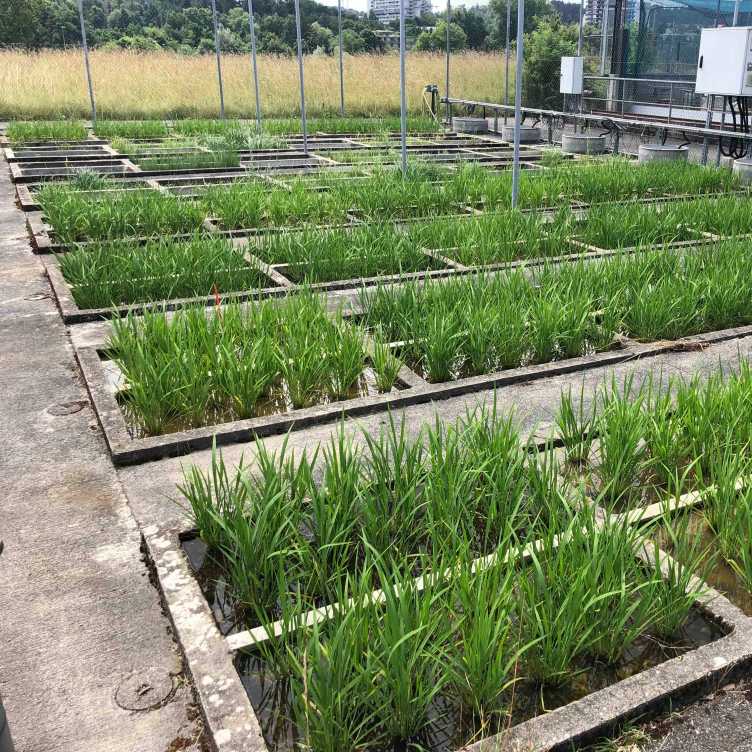
I've been interested in nature and investigating how life works since childhood and this passion motivated me to become a biologist. As my range of interests is quite broad, I am really happy to work on a project that encompasses many different aspects. In my PhD, I will study the microbial communities of rice fields in Switzerland with a focus on methanogens and methanotrophs and their relation to greenhouse gas fluxes and how soil carbon mineralization is affected by different residue managements. This will include field sampling, gas measurements, molecular work and tracing carbon sources with stable isotopes.In my free time, I like to read, try out new cooking recipes and go on hikes.

